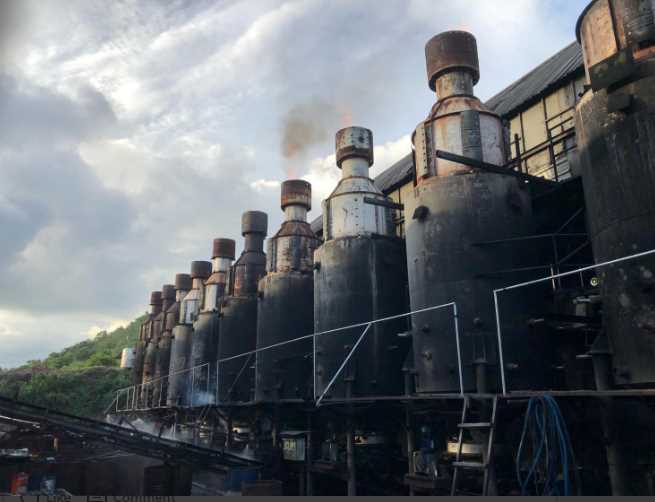Green Carbon
Coconut shell activated carbon can be a green choice, offering a truly sustainable product for the long term. As long as coconut plantations are managed in a sustainable manner, the resource is fully renewable.
On the other hand, traditional charcoal manufacturing methods are far from environmentally friendly, since the process itself releases large quantities of volatile organic gases into the atmosphere, including methane, which is a particularly potent greenhouse gas.
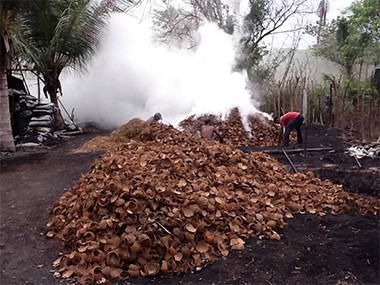


Haycarb has therefore developed their own industrial charcoaling operation at the Badalgama site in Sri Lanka. Winning the prestigious National Science and Technology Award for Eco-friendly processes in 2007, the Recogen business now produces more than 25% of Haycarb’s charcoal needs.
Recogen: A Success Story - Sri Lanka
We are especially proud of Haycarb’s role in Hayley’s recognition in the environment sector. The Recogen plant uses special vessels for the heating of the coconut shells in the required conditions for ideal charcoaling. The methane given off is collected, and then combusted in a boiler. A steam turbine then powers a 1 MW generator, which is connected into the Sri Lankan national grid. The multiple benefits of this unique facility can be stated as:
- Allowing charcoaling even in adverse weather conditions when traditional methods cannot take place, thereby smoothing the supply chain
- Consistent process giving reliable char quality
- Using traditional waste materials from domestic sources, collected by new private collection enterprises which provide jobs in rural areas
- Generating electricity from renewal resources
- Saving of the equivalent of 46,000 tonnes per annum of carbon dioxide release
- Generating tradeable carbon credits, registered under the UNFCCC system
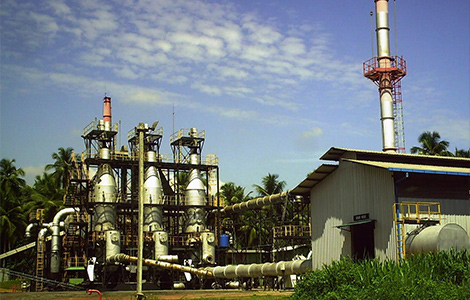
Our customers can also benefit from this technology by using activated carbon with a lower footprint, either through partial use of this char, or through exclusive use in the NeutroCarb branded products.
Haritha Angara: Haycarb’s Propagation and Empowerment of Green Charcoal Manufacturing - Sri Lanka
After the introduction of the patented pollution-free charcoaling process through Recogen, Haycarb have extended the technology to its use by local charcoal suppliers with the project Haritha Angara.
The Project
Haritha Angara is a community service project initiated by Haycarb which started in 2014 to propagate and empower our local charcoal suppliers to adopt pollution-free charcoaling in Sri Lanka. The programme encourages converting traditional open pit charcoaling sites to environment-friendly manufacturing which eliminates the release of harmful gaseous emissions such as Carbon Monoxide (CO), Methane and smoke to the environment, which are otherwise emitted during the process. Over the years Haycarb has supported 117 suppliers providing technical support and interest-free funding to build new pits with combustion chambers and improve existing pits. We named the project as “Haritha Angara” (which means "Green Carbon" in Sinhalese) as this endeavour contributes to a greener environment by reducing the release of both toxic and greenhouse gasses.
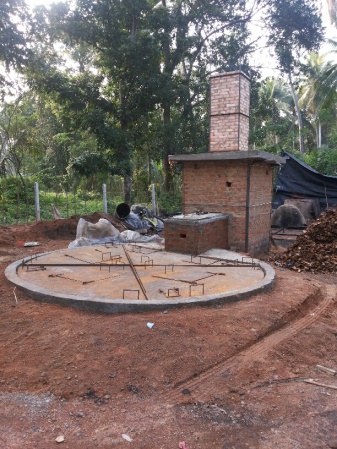
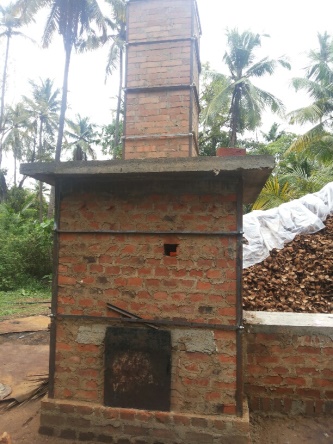
Progress of Haritha Angara as of 2018/19
|
Total number of suppliers supported |
117 |
|
Total number of pits constructed |
170 |
|
Total Investment |
Rs. 33.7 million (Approx. €168,000) |
Vertical Kilns at Carbokarn ltd - Thailand
The concept of promoting environment-friendly charcoaling was extended to Thailand through the vertical charcoaling kiln projects which commenced in 2015. Designed and built by Carbokarn and Haycarb in-house engineering teams, the project was initiated in Ratchaburi, Thailand with the capacity to manufacture 75 MT charcoal a day.
At present, there are 32 kilns in Ratchaburi, 2 kilns in Chonburi and 4 kilns in Prachuap Province (owned by a supplier) in Thailand, totalling 38 kilns. Carbokarn plans to further broad base the environment-friendly charcoaling kilns to more locations in Thailand in the future.
